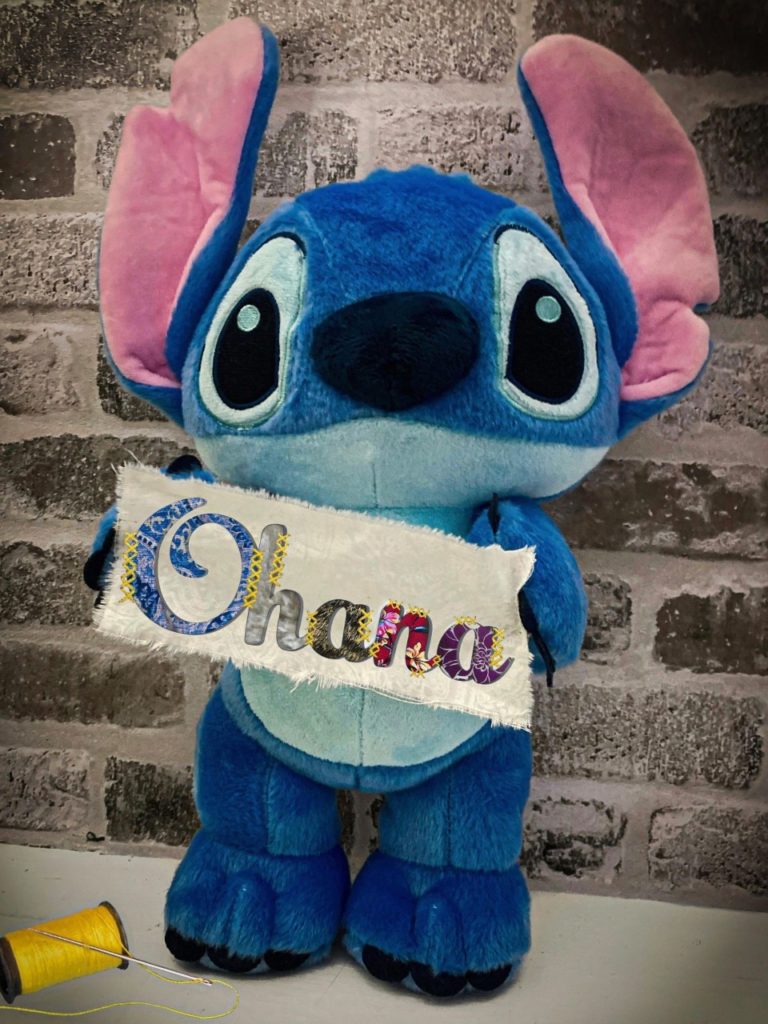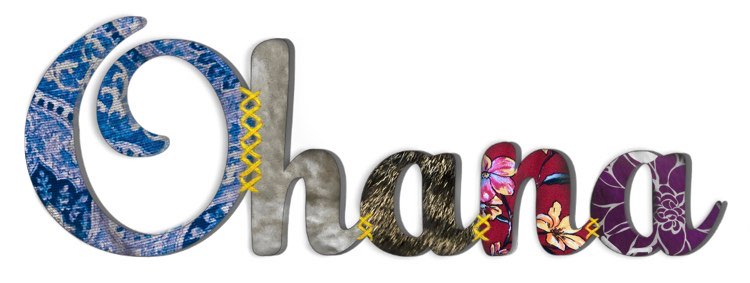As anyone who’s watched the heartwarming Disney movie, Lilo and Stitch, can tell you, “‘ohana means family.” I mean, anyone who speaks Hawaiian could also tell you that, but that’s beside the point. While this line about ‘ohana has become iconic, there are some less quoted lines (spoken by the alien, Stitch) that deserve just as much love:
“This is my family. I found it, all on my own. It’s little, and broken, but still good. Yeah, still good.”
That scene makes me cry. Not that it’s hard for me to cry. But it touches my heart, especially since Stitch’s speech feels so relevant to my own life. And maybe you relate with Stitch too?

In mainstream American culture, family has traditionally been defined by biology. At its core was the nuclear family—you know the kind, with mom, dad, and their expected 2.5 children. Then there’s the extended family, with grandparents, aunts, uncles, and cousins. The common thread, though, is that everyone is a blood relative (or else married to or legally adopted by someone in the biological family).
Other cultures, though, have long embraced alternative concepts of family. In fact, it’s a bit overly simplistic to just say that ‘ohana means family. In Hawaiian tradition, ‘ohana means the extended family, including nonrelatives with whom one shares close ties. As highlighted in Lilo and Stitch, ‘ohana also means that “nobody gets left behind or forgotten.” That’s because the concept of ‘ohana additionally carries a responsibility to care for one another.
“Chosen family” is another phrase that has entered the common lexicon. With chosen families, we are affirmatively making the decision to create a family founded upon a deep connection, rather than merely based on the default of something we are born into. A chosen family might be made up of any combination of friends, community members, romantic partnerships, or other species of animals.
Rather than blindly following tradition, we are free to ask, do arbitrary things like blood relations or genetic similarity really matter? Or is family more about being bound by love? And as the definition of family becomes more expansive, the opportunity arises to build something more akin to an ‘ohana. This may include biological family as well as chosen family.
So why are people making the effort to build chosen families? Let’s take a look at some of the reasons:
1. Changing perception of other animals: Humans have shared their homes with other species of animals for tens of thousands of years. Our ancestors developed relationships with these animals due to their usefulness, such as dogs assisting in hunting or cats keeping rats from eating stored grain. In modern times, though, animals are taking on the role of companions, and the overwhelming majority of those with cats and dogs see them as part of their family. Activists like Esther the Wonder Pig and her human dads, Steve Jenkins and Derek Walter, have also helped to change the way people are understanding farmed animals. Through social media, several books, and the Happily Ever Esther sanctuary, Steve and Derek have offered an opportunity to see Esther (and her animal siblings) through their loving eyes. Along the way, they have shown that pigs, and other species of farmed animals, can be lovely members of a family.
2. Lack of biological family: For numerous reasons, people may not have many biological family members with whom they can share a close connection. Some might have very few, if any, living kinfolk. Others may struggle to relate with their relatives or to have healthy relationships with them. And some are estranged from their biological families, which is particularly a risk for members of the LGBTQ+ community, who sadly might be rejected for simply being true to themselves.
3. Welcoming community and friendship: As the Beatles sang, “I get by with a little help from my friends.” Friendships really do contribute extensively to our wellbeing, both emotionally and even physically, with strong social ties reducing our risk of health problems and even death. And as social creatures, we have an innate need for a sense of belonging, which can be found in our close friendships or by being part of a community with shared values. So, by including close friends and community members as family, we acknowledge the magnitude of the significance of these relationships.

4. The childfree movement: While it used to be a given that part of adulthood included making babies, many are simply choosing to not reproduce. A massive 44% of non-parents aged 18 to 49 are not planning to become parents. Some are motivated by ethics, concerned about the environmental impacts of a growing population of 8 billion humans or the fairness of bringing new life into a world with so much suffering. The high cost of raising children is another reason for foregoing traditional parenthood. And many just don’t want to have kids. Of course, being childfree doesn’t necessarily mean a lack of desire to nurture. Childfree individuals might still take on parental-like roles in contributing to the care and development of the children of other humans, regardless of whether they are biologically related. Or they might choose to become parents by adopting fur babies (or less furry animals) as part of a multispecies family.
5. Declines in religiosity & marriage: The population of atheists, agnostics, and people who identify as nonreligious has been steadily on the rise. And as religion plays less of a role in people’s lives, the role of marriage is also shifting. No longer believing it’s sinful to engage in sexual relationships outside of marriage, many people are choosing to build families with romantic partners without getting married or else delaying marriage. These relationships are capable of being just as deep, loving, and significant, regardless of relationship titles or whether one is wearing a ring on their left hand.
Just as Stitch found his family, we can find our own families too. Of course, our biological relatives can still be part of our family, but we are not limited to those who share our genes. Our families are just as beautiful and precious regardless of how they are formed and stitched together.
Also by Lauren: How To Make Veganuary Work For You—Tips From A Longtime Vegan
Get more like this—Sign up for our daily inspirational newsletter for exclusive content!
__
Photo: Lauren Wesp




